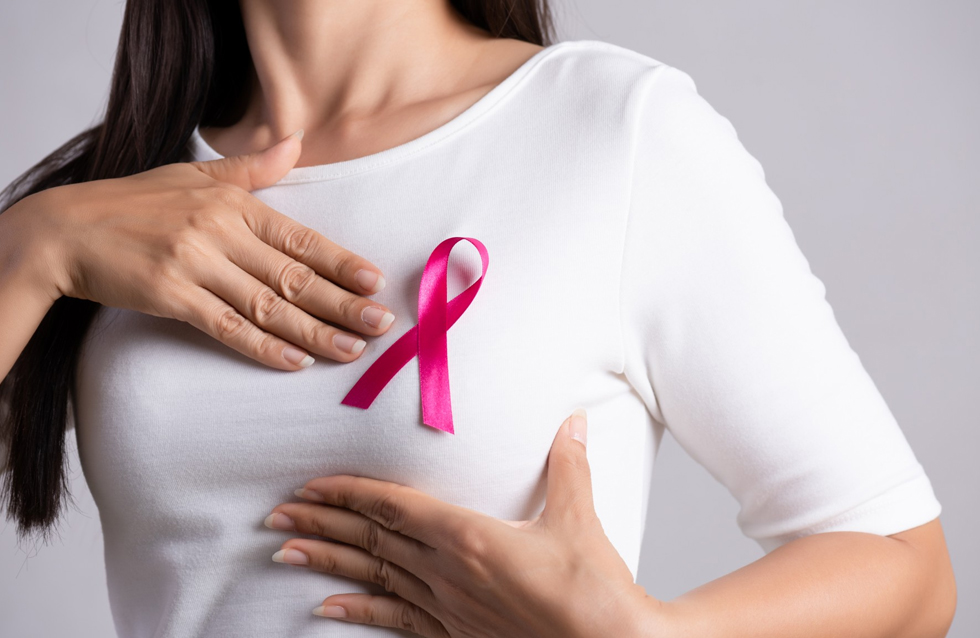
For women who’ve had breast cancer and would like to have a child, taking a break from a common treatment to try for a pregnancy appears safe in the short term.
A clinical trial studied the effect of temporarily halting hormone therapy, also called endocrine therapy, which reduces the risk that breast cancer will return. After about three years, the incidence of recurring or new breast cancer among women who paused the therapy was nearly the same as in a group that did not, researchers report in the May 4 New England Journal of Medicine. It’s the first study designed to assess the safety of a treatment break among women who wished to become pregnant.
The women in the study had hormone-positive breast cancer, which means that estrogen, progesterone or both hormones can promote the growth of the cancer. Roughly 80 percent of breast cancers are hormone positive, according to the National Cancer Institute. Hormone therapy drugs reduce the levels of these hormones in the body or block the interaction between the hormones and cancer cells that spurs growth (SN: 6/7/11). The treatment is a staple for hormone-positive breast cancers and is recommended for five to 10 years.
But hormone therapy, which can cause birth defects, cannot be taken during pregnancy. For women of reproductive age who have had hormone-positive breast cancer and want to have a child, a five- to 10-year wait may be untenable.
More than 30,000 U.S. women ages 20 to 44 are expected to be diagnosed with breast cancer in 2023. Studies have shown that younger breast cancer patients are concerned about the effect of treatments on fertility. For premenopausal women with hormone-positive breast cancer, the hormone therapy drug tamoxifen is recommended, but there is a reduced willingness to start or stick to the drug in this age group.
“This is obviously a really challenging position for these women to be in,” says breast surgical oncologist Nicole Christian of the University of Colorado School of Medicine in Aurora who was not involved in the research. “They’re being treated, hopefully cured of their breast cancer and they are looking forward to their long, hopefully healthy lives, and for many of these women, having a family is a part of that life.”
In the new study, breast medical oncologist Ann Partridge of the Dana-Farber Cancer Institute in Boston and colleagues tested whether pausing hormone therapy to pursue pregnancy and then resuming would alter the reduction in risk associated with the therapy.
The women in the study were 42 or younger, and almost all had had early-stage disease, meaning smaller tumors and limited spread of the cancer. Participants had had surgery and been on hormone therapy for 18 to 30 months. Some of the women had also had chemotherapy. The hormone therapy break was intended to last for about two years to give time for attempting pregnancy, delivering a baby and breastfeeding if desired.
The comparison group consisted of women with hormone-positive breast cancer of the same ages who had been participants in other trials studying hormone therapy. But these women had not taken a break from the therapy.
The incidence of new or recurring breast cancer for the 516 women who paused therapy was just under 9 percent, compared with just over 9 percent for the 1,499 women in the comparison group. Of the nearly 500 women for whom there was pregnancy information, 317 had at least one live birth. A majority of women in the trial resumed the hormone therapy.
The researchers plan to follow the women in the study for 10 years. For now, it’s helpful to have this initial data to support the decision to try for a pregnancy, Partridge says. “Cancer takes away so much control for people,” she says. “This allows them to add back some element of control in terms of their planning for their future and that of their family.”
Source : www.sciencenews.org/article/women-breast-cancer-treatment-pregnancy